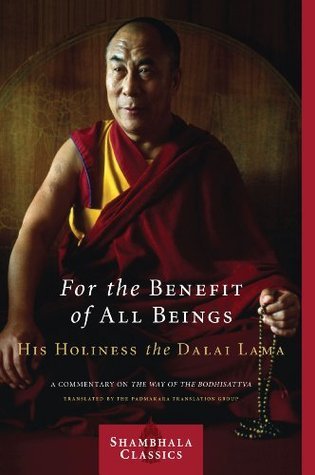What do you think?
Rate this book


The fourteenth Dalai Lama, a living embodiment of the bodhisattva ideal, presents detailed practical guidance based on sections of The Way of the Bodhisattva by Shantideva, the best-known text of Mahayana Buddhism. The Dalai Lama explains this classic and beloved work, showing how anyone can develop a truly "good heart" and the aspiration for the enlightenment of all beings. In this book, the Dalai Lama's profound knowledge is evident—the result of extensive training. Here he shares his extraordinary insight into the human condition and what it means to be a responsible and caring person.
160 pages, Kindle Edition
First published April 12, 2009